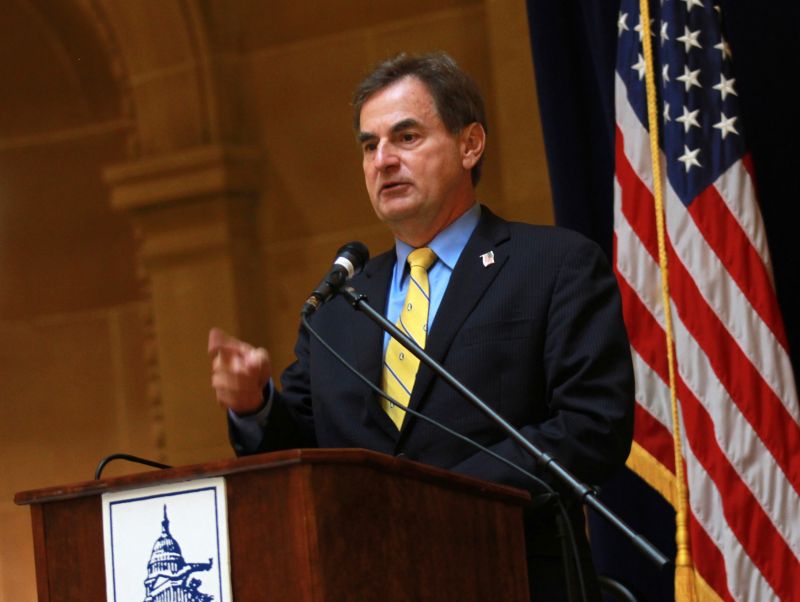
Indiana Republican Senate candidate Richard Mourdock.Chris Bergin/Chicago Tribune/Zuma Press
This election season has seen many ill-advised statements about rape and abortion from white, male, Republican candidates who have had exactly zero experience with either. We’ve already covered many of those statements, but what’s most interesting is how they’ve affected the candidates who made them.
Take, for example, Todd “Legitimate Rape” Akin (R-Mo.). He had a solid lead on incumbent Democrat Claire McCaskill from March to mid-August, when he stated his belief that women have magical rapist-sperm-killing abilities. His polls numbers took a nose-dive after that, as it appeared that voters in the state were going to “shut that whole thing down.”
But polls in the past few weeks show that the race might end up being a whole lot closer. McCaskill is still projected to pull out a win, but not by nearly the margin anyone would have predicted two months ago. (Since the remark, reporters have also tracked down police reports indicating that Akin was arrested eight times in the 1980s for protesting outside abortion clinics.)
Meanwhile, over in Indiana, Senate candidate Richard Mourdock drew similar outrage after he stated in an October 23 debate that “even if life begins in that horrible situation of rape, that is something that God intended to happen.” Mourdock beat long-serving Sen. Dick Lugar in the Republican primary last May, and was expected to defeat Democrat Joe Donnelly on Tuesday. But his poll numbers have dropped since the rape remark (and Democratic efforts to capitalize on them), and it seems pretty clear that the comment had a significant impact on the state’s voters. Now pollsters are predicting a Democratic win in Indiana.
The lesson here seems to be that if you’re a Republican male politician from the Midwest, you should keep your insensitive rape comments to yourself. Or, perhaps, just make them far enough before the election so that voters can start to forget about it before they go vote.














